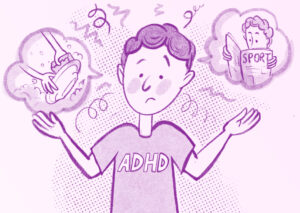What do counseling psychologists do is a question that has been asked time and again, so let me answer it for you today.
Counseling psychology is a specialized branch of psychology that emphasizes fostering personal and interpersonal functioning across the lifespan of an individual. It focuses on emotional, social, vocational, educational, health-related, developmental, and organizational concerns.
Counseling psychologists aim to help individuals improve their well-being, mitigate distress, and resolve crises while enhancing their ability to function better in their personal and professional lives.
Understanding the role of counseling psychologists is crucial, especially for those seeking mental health support. Knowing the differences between counseling psychologists and other professionals like clinical and rehabilitation psychologists can help individuals make informed choices about the type of support they need.
Table of Contents
ToggleWho is a Counseling Psychologist?
A counseling psychologist is a professional who has undergone extensive training in psychology, focusing on helping people manage and overcome problems of everyday living. They work with clients across various life stages, assisting them in dealing with issues related to stress, relationships, career choices, and life transitions.
Unlike clinical psychologists, who often deal with severe mental disorders, counseling psychologists typically focus on individuals dealing with less severe psychological issues.
To become a counseling psychologist, one must first complete an undergraduate degree in psychology or a related field. This is followed by a master’s degree in counseling psychology, and many professionals also pursue a doctoral degree (Ph.D.) to deepen their expertise.
This rigorous academic journey is supplemented by supervised internships and practical training, where aspiring psychologists gain hands-on experience in real-world settings.
Counseling psychologists must also adhere to strict ethical standards and engage in continuing education to keep their skills updated. This ensures they provide the best possible care to their clients.
Differences Between Counseling Psychologists, Clinical Psychologists, and Rehabilitation Psychologists
Understanding the distinctions between counseling psychologists, clinical psychologists, and rehabilitation psychologists is essential in choosing the right professional for your needs.
- Counseling Psychologists focus on helping clients navigate life’s challenges, such as stress, relationship issues, and career decisions. They often work in educational settings, private practices, or community centers. Their approach is holistic, aiming to improve clients’ overall well-being and life satisfaction. Counseling psychologists emphasize personal strengths and resilience, helping clients develop coping strategies and make positive changes in their lives.
- Clinical Psychologists, on the other hand, are trained to diagnose and treat severe mental health disorders like depression, anxiety disorders, bipolar disorder, and schizophrenia. Their work often involves extensive psychological assessments, and they might work in hospitals, mental health clinics, or academic settings. Clinical psychologists are experts in applying evidence-based therapies, such as Cognitive Behavioral Therapy (CBT), to treat complex psychological conditions.
- Rehabilitation Psychologists specialize in working with individuals who have physical, cognitive, or emotional disabilities. Their primary goal is to help these individuals achieve maximum independence and improve their quality of life. Rehabilitation psychologists often collaborate with other healthcare professionals to create comprehensive treatment plans that address the unique challenges faced by their clients.
The key differences lie in the focus of their work: while counseling psychologists focus on everyday issues and personal development, clinical psychologists deal with severe mental health conditions, and rehabilitation psychologists assist those with disabilities in leading more fulfilling lives.
What Issues Can Each Type of Psychologist Help With?
Different psychologists are suited to address different types of issues, depending on their training and specialization:
- Counseling Psychologists can help with:
- Stress management
- Anxiety and mild to moderate depression
- Relationship difficulties
- Career counseling and decision-making
- Life transitions (e.g., divorce, retirement)
- Self-esteem and personal growth
- Clinical Psychologists are well-equipped to treat:
- Severe depression and anxiety disorders
- Bipolar disorder
- Schizophrenia and other psychotic disorder
- Personality disorders
- Post-traumatic stress disorder (PTSD)
- Obsessive-compulsive disorder (OCD)
- Rehabilitation Psychologists assist with:
- Coping with chronic illness or injury
- Managing pain and disability
- Vocational rehabilitation and career counseling for individuals with disabilities
- Psychological adjustment to physical limitations
- Support for caregivers of individuals with disabilities
By understanding the issues each type of psychologist can address, individuals can make informed decisions about the type of psychological support that best suits their needs.
What Do Counseling Psychologists Do?
The daily responsibilities of counseling psychologists vary depending on their work setting and specialization. However, their core duties generally include:
- Conducting Therapy Sessions: Counseling psychologists provide individual, couple, family, and group therapy sessions. These sessions are designed to help clients explore their feelings, thoughts, and behaviors, identify problems, and develop effective coping strategies. The therapeutic process is often collaborative, with the psychologist guiding the client toward self-discovery and empowerment.
- Performing Assessments: Counseling psychologists use various assessment tools to evaluate clients’ psychological state, including standardized tests, interviews, and observation. These assessments help psychologists understand clients’ issues more deeply and develop personalized treatment plans.
- Developing Treatment Plans: Based on the assessments, counseling psychologists create tailored treatment plans that address the specific needs of their clients. These plans may include setting goals, outlining strategies for change, and determining the frequency and duration of therapy sessions.
- Ethical Practice and Continuing Education: Counseling psychologists must adhere to strict ethical guidelines, including maintaining client confidentiality, obtaining informed consent, and practicing within their area of competence. They also engage in continuing education to stay updated on the latest research and therapeutic techniques, ensuring they provide the best care possible.
- Work Settings: Counseling psychologists work in various environments, including private practice, hospitals, schools, colleges, community health centers, and corporate settings. Their work setting often influences the type of clients they see and the issues they address.
Difference Between Counseling and Clinical Psychologists
While both counseling and clinical psychologists are trained to treat mental health conditions only clinical psychologists can diagnose a mental illness. Along with this, here are some key differences in their approaches:
- Therapeutic Approaches: Counseling psychologists often adopt a more holistic, client-centered approach, focusing on the individual’s strengths and potential for growth. They might use therapies like Humanistic Therapy, Person-Centered Therapy, or Solution-Focused Brief Therapy, which emphasize self-acceptance, personal growth, and positive change.
- Clinical psychologists, however, are more likely to use evidence-based, structured approaches such as Cognitive Behavioral Therapy (CBT), Dialectical Behavior Therapy (DBT), or Psychodynamic Therapy. These therapies are designed to treat specific mental health conditions and are often supported by extensive research.
- Assessment and Diagnosis: Both types of psychologists are trained in assessment, but clinical psychologists tend to have more experience with complex, severe cases and they are the only ones who can legally diagnose and provide a report for a mental illness. They might conduct comprehensive psychological evaluations and use diagnostic tools like the DSM-5 to classify mental disorders.
- RCI License Requirement: In India, clinical psychologists are required to hold a license from the Rehabilitation Council of India (RCI). This license ensures that they have the necessary training and qualifications to diagnose and treat severe mental health disorders. While counseling psychologists may not always require an RCI license, those involved in clinical work or who wish to be recognized as clinical psychologists must obtain this certification.
Conclusion
Choosing the right psychological support is crucial for effective treatment and personal growth. Whether you need help navigating life’s challenges or require treatment for a severe mental health condition, understanding the differences between counseling psychologists, clinical psychologists, and rehabilitation psychologists can help you make the best choice for your needs.
Counseling psychologists play a vital role in promoting mental well-being by providing compassionate, client-centered care. If you’re struggling with stress, relationship issues, or life transitions, a counseling psychologist can guide you toward a healthier, more fulfilling life.
Always remember that seeking help is a sign of strength, and the right psychologist can make a significant difference in your journey toward mental health and wellness.







